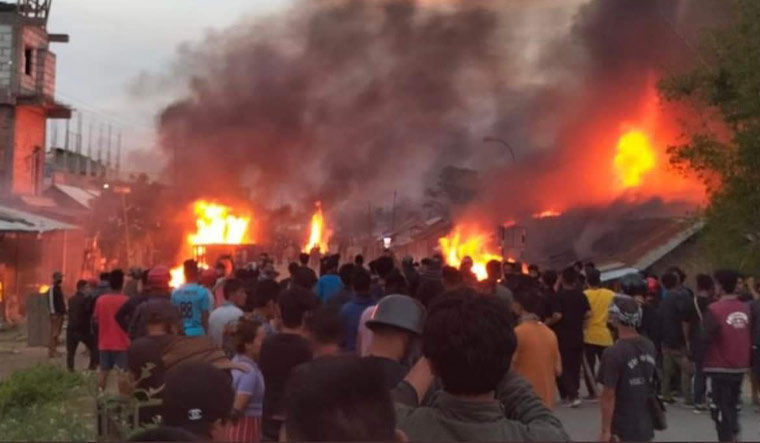The law and order breakdown in Manipur might have its genesis in long-standing ethnic tensions between the majority Meiti community and the tribal Kukis, but it has spiralled out of control due to political inaction worsened by coalition woes, porous border causing demographic changes, encroachment of forests land, unchecked poppy cultivations and underlying support of insurgent groups fuelling the armed violence.
While the central government has taken emergency steps to deploy the army and central armed police forces, the violence is spilling over to neighbouring states of Mizoram, Assam and Nagaland where several people are crossing over to take shelter.
The BJP has been in a spot in Manipur over the demand for tribe status for Meitis for a long time. In April, the Manipur High Court asked the state government to consider their inclusion in the Scheduled Tribe list, once again putting the ball back in the court of the state government.
But the issue is fraught with layers of complexity-the biggest being the allegations of the Kukis that they are being evicted from villages and their forest lands are being snatched away in an alleged bid to convert them into forest reserves. The tribal communities fear that the Meitis will take over the land resources if granted ST status.
“The present situation, if not solved quickly may lead the whole northeast states into communal disturbances as we are all living together everywhere,” said K. Vanlalvena, Rajya Sabha MP, in a letter to union home minister Amit Shah on May 4.
Amidst the Meitis claim over ST status and the Kukis defence of their forest land, the state government has been facing the influx of refugees from Myanmar who are allegedly taking the hill routes after crossing over from the porous border causing social and demographic changes. If this isn’t all, the rise in illegal poppy cultivation in these areas has caused a more troublesome situation for the state government, especially after neighbouring states like Assam have been cracking down on the drug cartels prompting the union home ministry to sit up and take notice. Off late, the state government has been carrying out a drive against illegal poppy cultivations in hill areas dominated by Kukis.
The Biren Singh government’s challenge has been to balance its political compulsions arising out of the support from the dominant Meiti group and the members of various tribal communities like Kukis and Nagas. But the balance has been unsettled with the majority Meitis slowly losing patience and voicing fears of shrinking population in the upcoming census exercise, thereby knocking on the doors of the central government.
The inability of both central and state governments to clarify their stand on the socio-economic status of the majority community, and whether its numbers have been impacted by the demographic change, has kept the pot boiling for too long.
A decade ago, the Union tribal affairs ministry had asked the Manipur government to share its recommendation along with the ethnography and socio-economic survey report to examine the issue. But sources said the issue remained stuck in files while unrest continued to fester on the ground.
Nabakishore Yumnam, national spokesperson of the World Meiti Council said the state government should clarify its stand on the issue soon and send its recommendations to the Centre. He warned of the violence spilling over to other states like Assam, Nagaland and Mizoram as the unrest was spreading to other ethnic groups siding with either side.
“We have tried to explain to the Nagas to abstain from involving themselves in the issue. The concern is also of the armed Kuki National Organisation adding fuel to fire,’’ he said.
Miscreants using arms and arson during the ongoing clashes have already raised heckles in the security establishment which has been warning the state against inflow of refugees from Myanmar reigniting ethnic tensions.
Chief Minister Biren Singh has been in favour of stopping the Free Movement Regime (FMR) on the 398km-long Manipur-Myanmar border to counter illegal immigration and cross-border smuggling of arms and drugs. But, the ongoing violent clashes are a grim reminder of the struggles and uprisings within, demanding the attention of both the central and state government.



